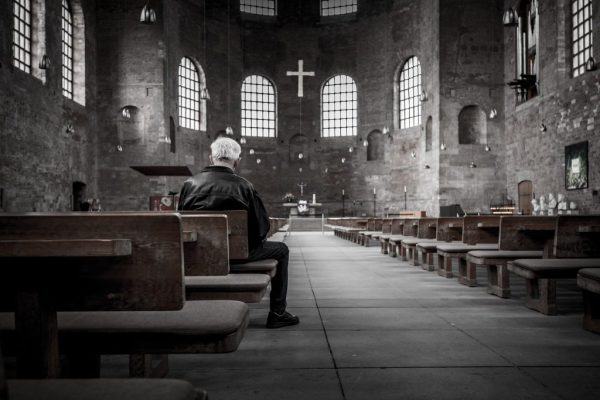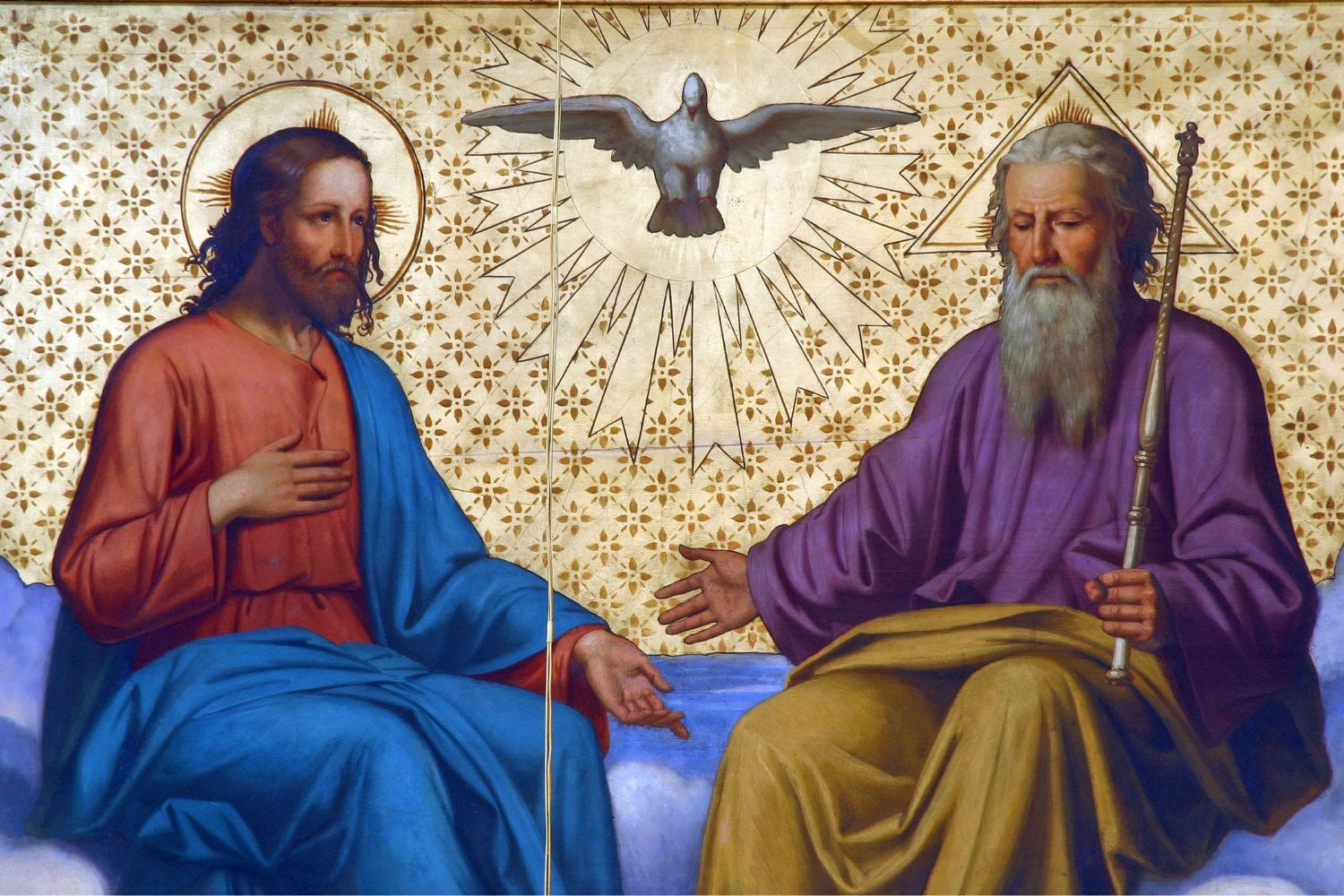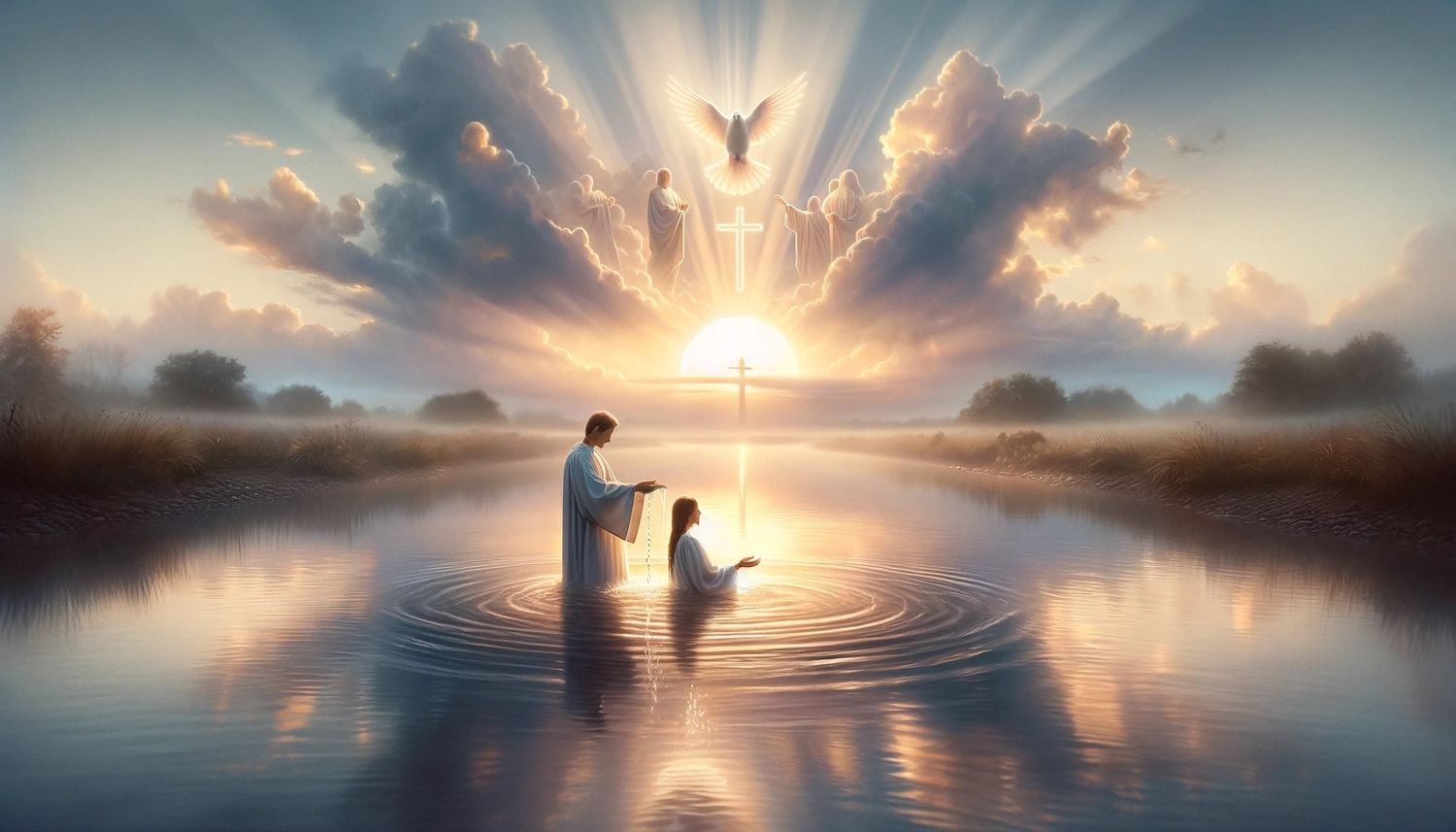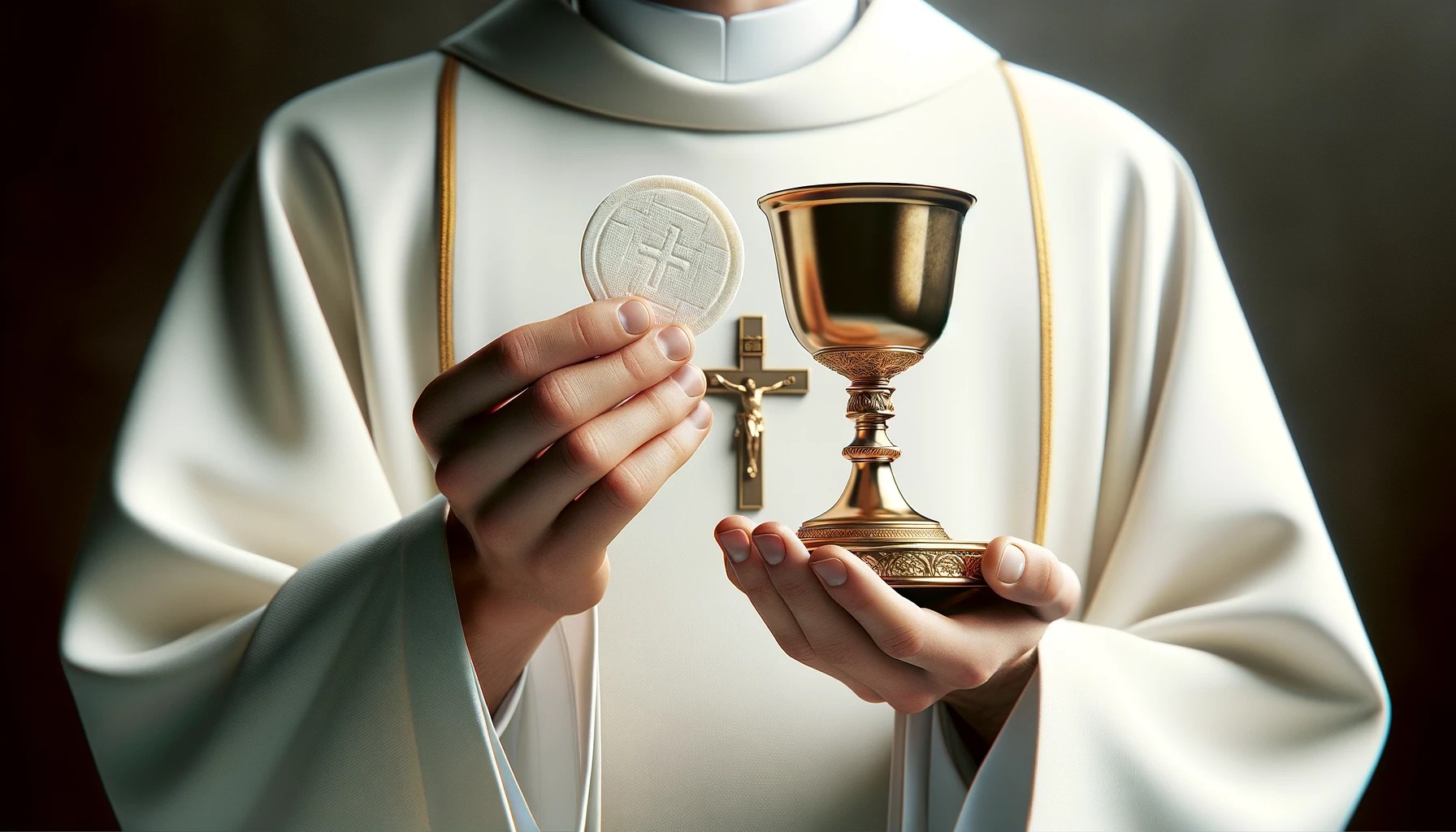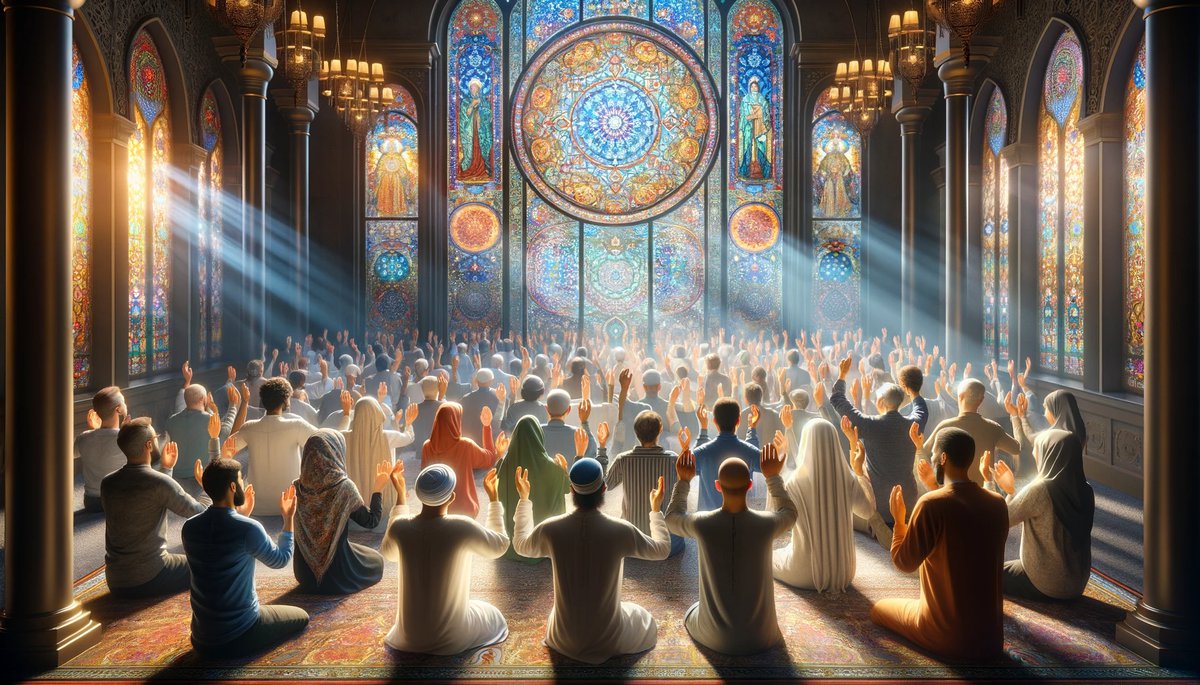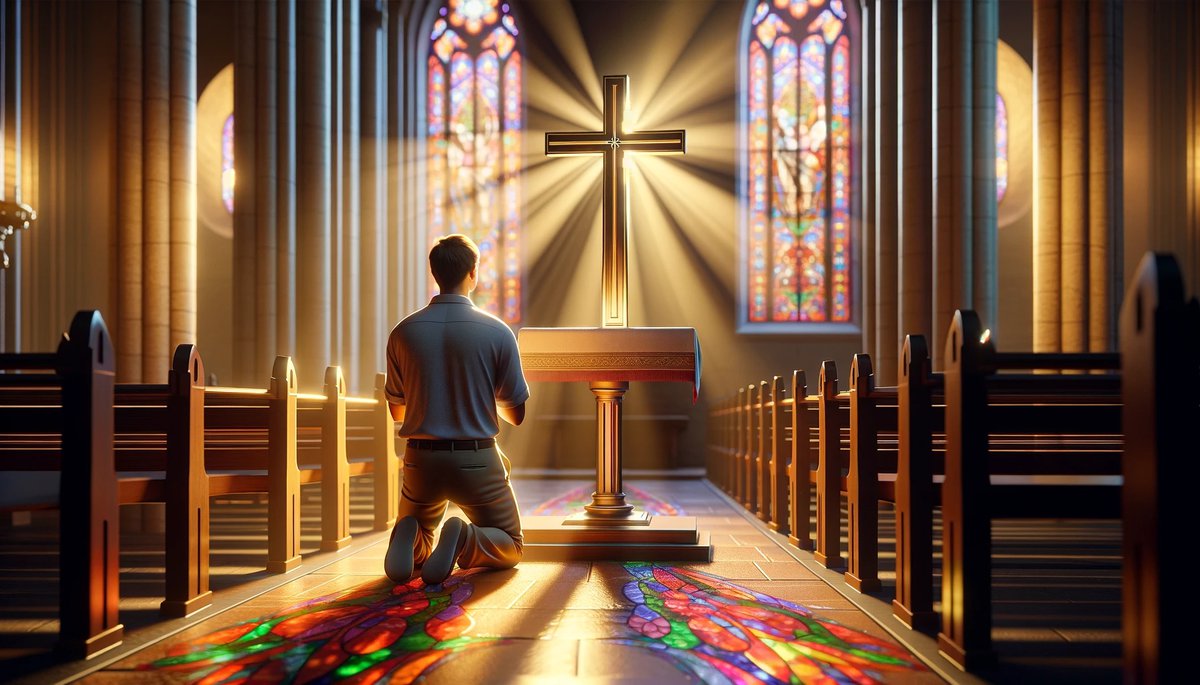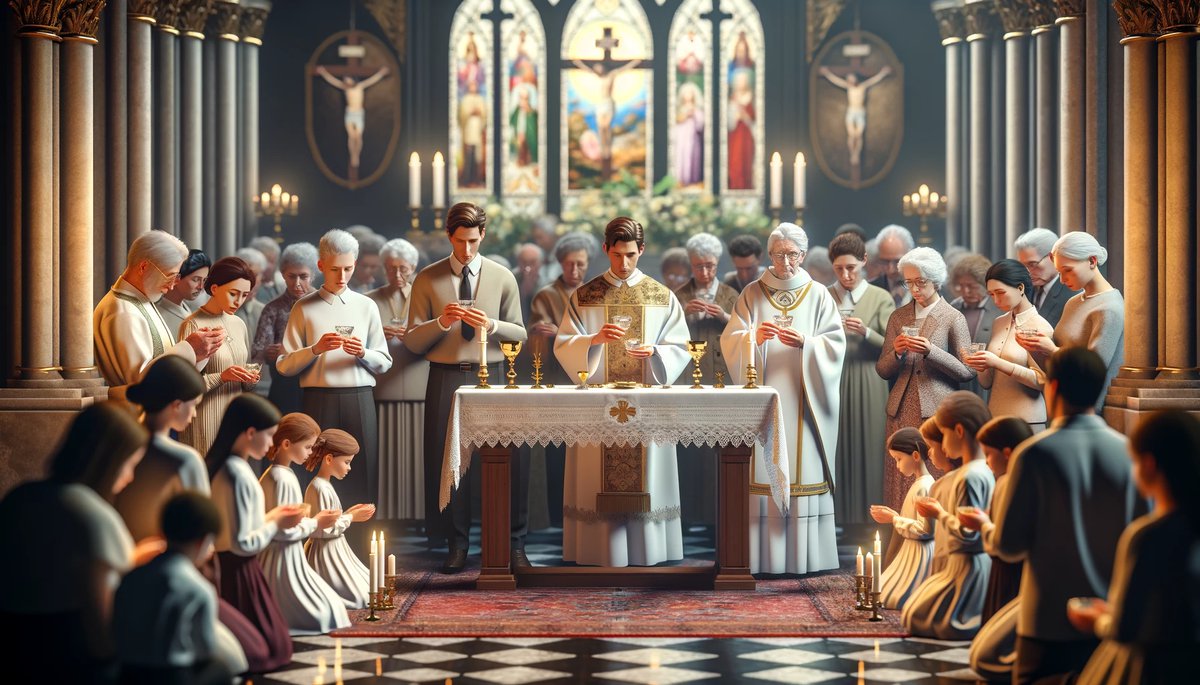Home>Christian Resources>The Verse of the Holy Trinity Explained
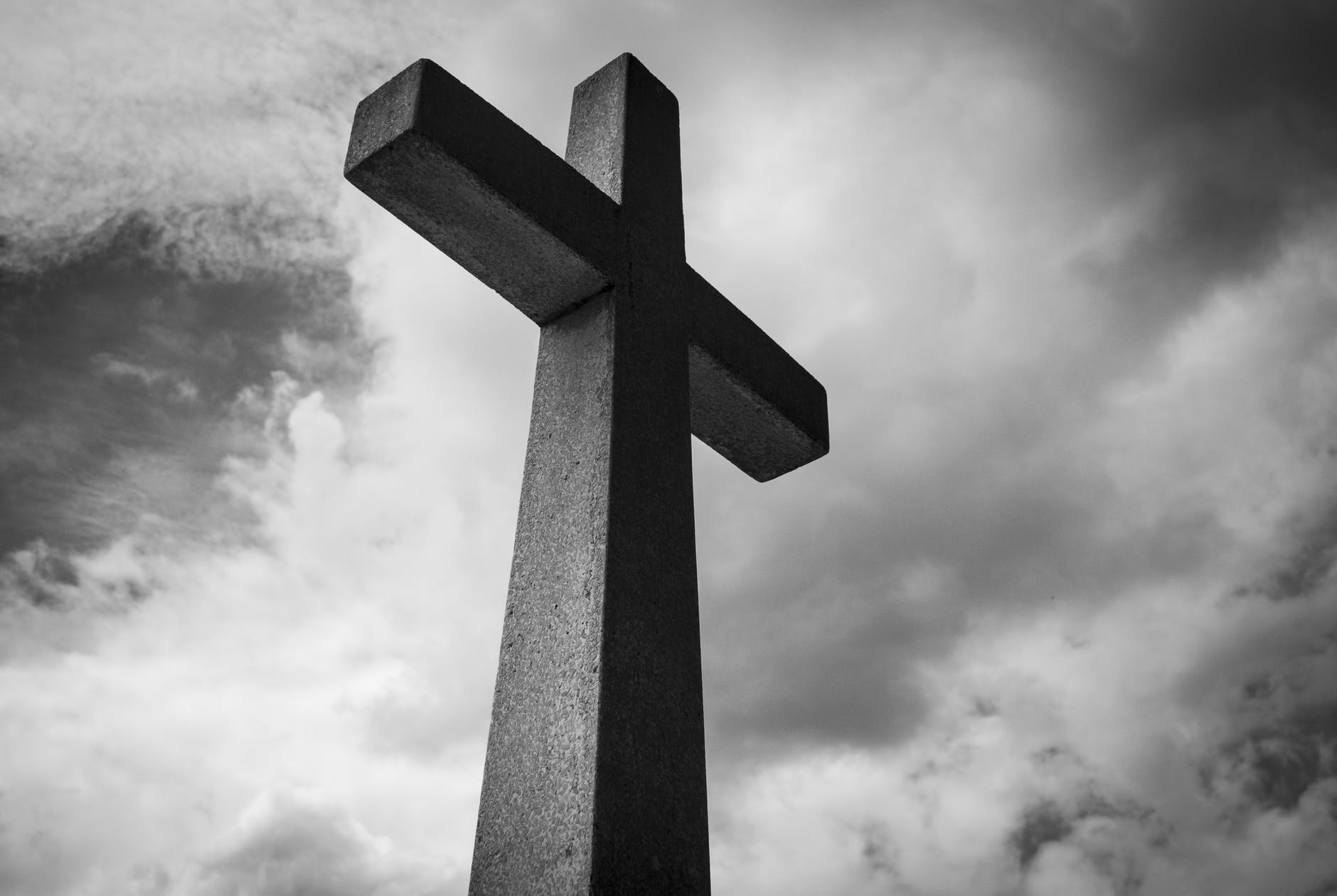

Christian Resources
The Verse of the Holy Trinity Explained
Modified: January 9, 2024
Ericka Andersen, an editor at Christian.net, expertly merges digital strategy with content creation, focusing on faith and societal issues. Her communication skills enhance the platform's engaging narratives, fostering meaningful dialogue on belief's impact on society.
The Holy Trinity is the central core of the Christian Faith. Learn about God's three personas; the Father, the Son, and the Holy Spirit.
(Many of the links in this article redirect to a specific reviewed product. Your purchase of these products through affiliate links helps to generate commission for Christian.net, at no extra cost. Learn more)
The verses of the Holy Trinity and its concept has always been the core of the Christian Faith. From when a child experiences Baptism, the process is carried out “in the Name of the Father, the Son, and the Holy Spirit”. The Holy Trinity is also the basis of The Sign of the Cross in which some branches of Christianity use for strength, affirmation, and faith. God is the Holy Trinity as He is three in one.
Though God is three distinct persons, He is still of one nature. To put simply, as God is the foundation of our faith, so is the Holy Trinity. However, the nature of the Holy Trinity can sometimes spark confusion between some people – Does this concept say that there are three versions of God? Or is the Holy Trinity separate from each other? Well, the only and the best way to address these questions is through the Holy Bible. So, how can one truly explain the Holy Trinity?
The Holy Trinity in the Old Testament
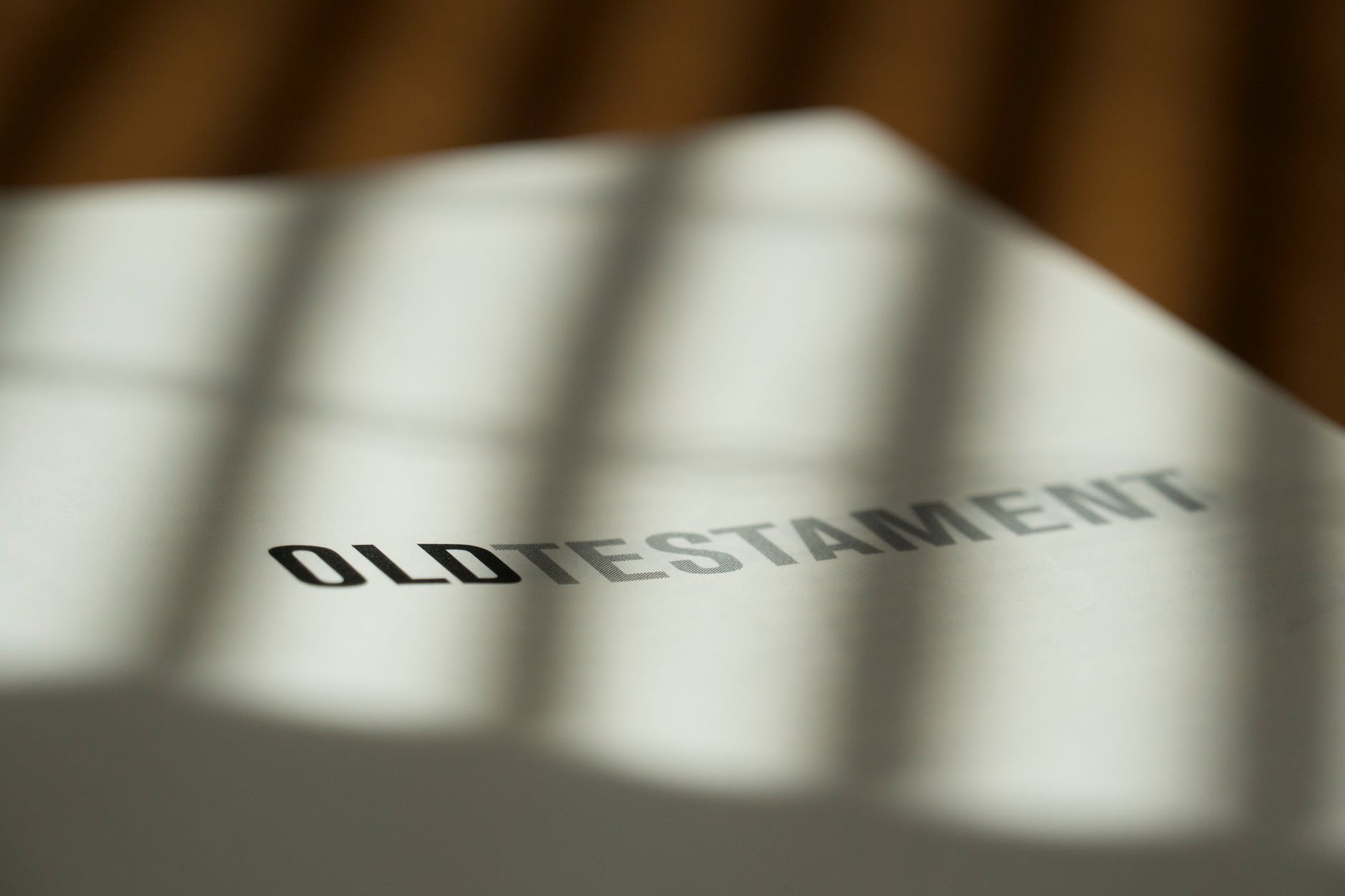
The Book of Genesis already has references to the Holy Trinity indirectly. Genesis 1:26 states, “Let us make humankind in our image, according to Our likeness; and let them have dominion over the fish of the sea, and over the birds of the air, and over the cattle, and above all the wild animals of the earth, and over every creeping thing that creeps upon the earth.”. The words at the beginning of this sentence are usually overlooked or not really thought about. However, if we look closely, the usage of the words “let us” suggests the thought of plurality thus, pointing out to the concept of the Holy Trinity and not to angels since angels cannot create.
Read more: How To Explain Advent To Kids
The Holy Trinity in the New Testament

The Bible has many occasions in which God’s characteristics are revealed. But, God as the Holy Trinity is a whole different topic and is thoroughly mentioned in the New Testament. The books of Matthew and John hold many accounts of the Holy Trinity. For instance, the Book of Matthew mentions baptism through the Holy Trinity.
Matthew 28:19
Therefore go and make disciples of all nations, baptizing them in the name of the Father and of the Son and of the Holy Spirit.
Jesus also mentioned the Holy Trinity in John, where the Holy Spirit was bound to be given by the Father in the Son’s name. The number of the Holy Spirit was confirmed in 1 John 5:7 where there are three that will testify. Indeed, the Holy Trinity is God the Father, God the Son, and God the Holy Spirit, the three are equally Holy, eternal and indivisible.
John 14:26
But the Advocate, the Holy Spirit, whom the Father will send in my name, will teach you all things and will remind you of everything I have said to you.
The Three Hypostasis of the Holy Trinity
The Holy Trinity is derived from the word “trinitas” which means “three” or “triad”. The Father, the Son, and the Holy Spirit are in no way the same – As a matter of fact, they are highly distinct from each other! Let’s take these two verses from the books of Matthew and John as an explanation:
Matthew 11: 25-16
“At that time Jesus said, “I praise you, Father, Lord of heaven and earth, because you have hidden these things from the wise and learned, and revealed them to little children. Yes, Father, for this is what you were pleased to do.”
John 14: 15-17
“And I will ask the Father, and he will give you another advocate to help you and be with you forever— 17 the Spirit of truth. The world cannot accept him, because it neither sees him nor knows him. But you know him, for he lives with you and will be[a] in you.”
In these verses, notice how Jesus the Son is speaking to the Father. From this, it is clear that God the Father and God the Son are not the same. If They were, Jesus would not have the need to talk to another One of God’s Nature. But He did, separately, to God the Father. However, in John 14: 15-17, this was an introduction of the Holy Spirit in Jesus’ Words. The Holy Spirit is the Spirit of Truth in which lives within us. Then again, it is different from God the Father and God the Son.
God The Father
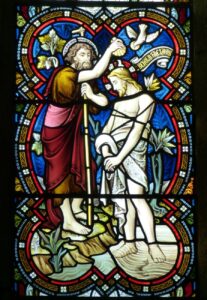
In the Holy Trinity, God the Father is the First Person. There are two highlights of His Works; First, He created the universe in His Hands and second, He is our loving, merciful, and forgiving Father. God the Father is The one responsible for creating the universe which will be carried out by His Son, Jesus Christ. Additionally, God the Father is omnipotent, omniscient, and omnipresent. This means that He can do everything, He knows everything and He is everywhere.
2 Corinthians 3:4
“Praise be to the God and Father of our Lord Jesus Christ, the Father of compassion and the God of all comfort, 4 who comforts us in all our troubles, so that we can comfort those in any trouble with the comfort we ourselves receive from God.”
Genesis 1:31
“God saw all that he had made, and it was very good. And there was evening, and there was morning—the sixth day.”
Psalm 121: 1-2
“ I lift up my eyes to the mountains—where does my help come from? My help comes from the Lord, the Maker of heaven and earth.”
God the Father is frequently mentioned in the pages of the Bible. His strength as the Creator and as the Father has always been highlighted. He is not God the Son or Jesus Christ and this was made clear in John 14:8-9 when Philip asked Jesus to show him God the Father. Here, Jesus replied saying that whoever has seen Him, has seen the Father also. In the Holy Trinity, it is God the Father that created us and our universe and until today, it is God the Father that helps us and gives us breath daily. He reveals Himself through His Words; and from His Words, He reveals Himself through Jesus Christ.
Read more: What Is The Trinity In Catholicism
God The Son
In the Holy Trinity, God the Son is the Savior and the Redeemer. Jesus Christ is the Son of Man who has saved us from our sins. He has paid the debt for our sins, and the price of sin is death. In exchange for the numerous sins we have committed, Christ paid the price though death on the cross for us to experience the bliss of eternal life. God is merciful and loving, He wants us to live happily and freely.
John 1:1-2
“In the beginning was the Word, and the Word was with God, and the Word was God. 2 He was with God in the beginning.”
Jesus’ life and ministry can be found in the New Testament. As the Son of the trinity, Jesus lived in the human world from the Heavens. Moreover, It is through His Name that carries out the plan of God the Father. It is through Jesus Christ that we are living in His utmost security and assurance. He is the living epitome of our eternal life.
In Colossians 2:9, it was made clear that the Holy Trinity lives fully in flesh through Jesus Christ. It’s because of Jesus Christ that we have our Holy Communion. By taking bread in remembrance of His Body, we are accepting Jesus as God the Son, the Redeemer, and the Savior.
God The Holy Spirit

In the Holy Trinity, it is God the Father who creates, God the Son who saves, and the Holy Spirit that gives life. Through the Father, Son, and Holy Spirit, the works of the Holy Trinity is carried out. The Holy Spirit is not ghost-like and invisible in contrast to what illustrations and movies depict of Him – The Holy Spirit is God Himself. He is the Comforter and the Sanctifier of this universe. Ignoring the usual misconceptions regarding the true nature of the Holy Spirit, here is what the Holy Bible says about God the Holy Spirit:
Isaiah 63:10
“Yet they rebelled and grieved his Holy Spirit. So he turned and became their enemy and he himself fought against them.”
Ephesians 4: 29-30
“Do not let any unwholesome talk come out of your mouths, but only what is helpful for building others up according to their needs, that it may benefit those who listen. “And do not grieve the Holy Spirit of God, with whom you were sealed for the day of redemption”.
The verses above prove that the Holy Spirit is not just a ghost; the Holy Spirit is the God that feels. In the same manner, He also gets angered and pained. The sins of humans reflect His emotions directly and unquestionably. The Holy Spirit feels joy, sadness, and anger – This is why He is more than worthy of praise and prayer.
Nehemiah 9:20
“You gave your good Spirit to instruct them. You did not withhold your manna from their mouths, and you gave them water for their thirst.”
The Holy Spirit is more than just the Holy Ghost; it is God of full and loving intentions. God wants the best for you, He wants to save you and most importantly, He wants to be with you. The book of Romans has something blissful to say about the Holy Spirit. In Romans 8: 26-27, the Holy Spirit desires to help us from our weaknesses. It works quietly without a word but, it also knows every depth and every corner of our hearts. In this way, God can set us straight in accordance with the will of God.
Speaking of the Holy Spirit’s great intentions, He is actually immensely active in our lives! It is the Holy Spirit’s presence that made Jesus Christ’s body complete. During the Pentecost or the Birth of the Church, the Holy Spirit lived upon the Apostles directly from the Heavens. The Holy Spirit also gave indescribable power that paved the way for God’s Church. An example of this is the “gift of tongues” that made the Apostles fluent in every language to spread the Word of God (1 Corinthians 12). Therefore, we can only imagine the vast gifts the Holy Spirit has prepared for us when we accept Him.
Explaining the Holy Trinity: Trinitarianism versus Tritheism

Many people question how the Holy Trinity is three persons and not just one. Aren’t They different from Each Other? Well, it is true that we have only One God. This was made clear in Isaiah 44:6 when God stated, “I am the first and I am the last; besides Me, there is no god.”
The Ten Commandments in Exodus 20:5-3 emphasized on how God is singular and that there is no other god other than Him. Aside from this being a statement from the Lord, it is an order that we must follow at all times. To answer the question as to how many gods we worship; There’s only an absolute one with three components; the Father, the Son, and the Holy Spirit – and They testify One Another as One Body.
Now, this is where people often experience confusion. The idea of the Holy Trinity is based on trinitarianism in which Christians center their faith on and not its opposite, tritheism. Trinitarianism, which Christians follow, believes that we have only one God with three divine persons – The Father, the Son, and the Holy Spirit. On the other hand, Tritheism believes in three gods with three different bodies.
The Holy Trinity is like a three-dimensional cube. To make a cube, you need its parts – the width, the length, and the height. Of course, these components are not the same but, they are all in one three-dimensional cube. In creating a cube, one cannot take out the width from its form and just because it has three parts, does not equate to these parts having different single forms. God is only one; but His Personas include the Father, The Son, and The Holy Spirit. The Holy Trinity is equal and indivisible. It’s not about praying differently to God’s three parts as He is only One. So, when you pray to God, you are praying to God the Father, the Son, and the Holy Spirit!
Another example in understanding the Holy Trinity is by observing the human anatomy. Our bodies function with different parts. In the simplest manner, our bodies need the heart, the brain, and the kidneys to process well. Our heart alone is not a different being as it is a part of ourselves, right? The brain is not the individual itself, right? And the kidneys alone don’t mean they are all of you, right? And that’s how our God is. He is the Father, the Son, and the Holy Spirit! That’s how amazing He is. It’s like our God is a mathematical equation that isn’t 1 + 1 +1 is equals to three. Instead, our God works in multiplication! So, 1 x 1 x 1 does not equal to three but, only equal to one.
The Holy Trinity in Our Lives

Frustrations, problems, and even hopelessness can sometimes make our faith shake and our sight cloudy. When our problems seem to dominate and take up all of our time, we often forget just how powerful our God really is. Think about it, our God is God the Father who holds the entire existence and end of the universe in His hands, God the Son who holds the perfect and unconditional love of the whole world and God the Holy Spirit, who holds hope and resurrection in our lives. If our one and only God is the Holy Trinity, what is there to fear?
We should always be reminded that the Holy Trinity, our one and only God is oozing with unlimited, divine power. The Holy Trinity works perfectly and equally. So, pray to God as His nature alone is enough proof of how worthy of praise, faith, and love He truly is.
Do not be confused, the Holy Trinity is the nature of our Lord. The Trinity has specific roles in the universe and in our lives but of course, we are still pertaining to one God. It is like how Sigmund Freud split the human personality into three layers. Namely the id, ego, and super-ego. Thinking about this, we can easily understand that God is like that!
The Holy Trinity is for us to understand our Lord more, it is impossible for us humans to measure His Greatness in our mere eyes. But with the Holy Trinity, we can understand God and His intentions for us more. We can also have a better grasp of what He created and did for us. To understand the Holy Trinity is to understand God. In the same manner, to praise the Holy Trinity is to give praise to our God.



